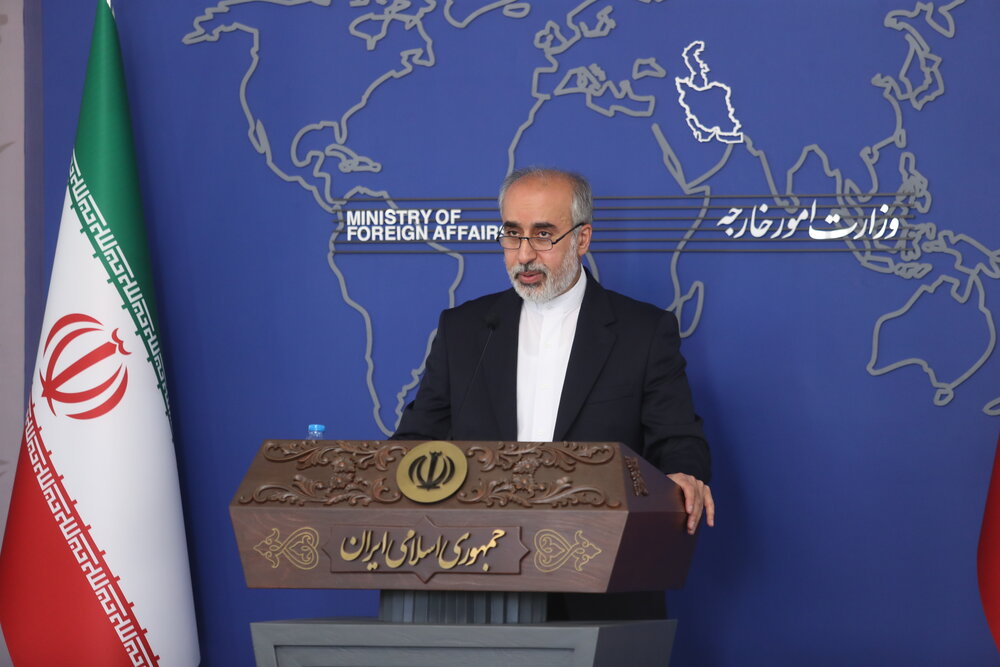Israeli regime unable to strike Iran: Foreign Ministry spokesman

TEHRAN- The latest Israeli threats against the Islamic Republic have been rejected by the spokesman for Iran's Foreign Ministry as “psychological warfare” since the Tel Aviv regime will never dare to confront Iran.
In an interview with the Al-Alam TV channel aired on Tuesday, Nasser Kanaani asserted that the recent threats by the Zionist regime were only psychological warfare and that this regime lacked both the guts and the capacity to militarily face Iran.
He emphasized that Iran will retaliate forcefully against any "idiocy" by the Tel Aviv regime.
“Iran’s response to any idiocy committed by the Zionist regime will be destructive,” Kanaani stated.
Aviv Kohavi, the head of the Israeli army, claimed on Sunday that Israel had a "moral obligation" to prepare a military response to Iran's nuclear program and that this preparedness was "at the center" of the military's preparations.
In a joint statement issued on Thursday in the occupied city of al-Quds on Thursday, U.S. President Joe Biden and Yair Lapid made bogus claims against Iran for its nuclear program.
Biden stated that the U.S. “will not allow Iran to acquire a nuclear weapon.”
Iran has consistently insisted that its nuclear program is purely for peaceful purposes. Leader of the Islamic Revolution Ayatollah Seyed Ali Khamenei issued a fatwa (religious decree) nearly a decade ago banning the production, stockpiling and use of weapons of mass destructions (WMDs), including nuclear arms.
Kamal Kharrazi, head of Iran's Strategic Council on Foreign Relations who was foreign minister from 1997-2005, denied claims that his country is seeking nuclear weapons.
In an interview with Al Jazeera aired on Sunday, Kharrazi said while the Islamic Republic has the "technical capabilities" to enrich uranium beyond the present 60 percent level, it will not take that step.
Kanaani also said that Biden, during his recent tour to West Asia, failed to establish an anti-Iran alliance because regional countries do not trust the U.S.
Given the diplomatic efforts to resurrect the 2015 Iran agreement, officially known as the Joint Comprehensive Plan of Action (JCPOA), the Foreign Ministry spokesperson stated that the U.S. has not accepted all of Iran's demands, which must be met under the JCPOA.
Washington must provide a real assurance to Iran, he said, implying that the U.S. keeps the door open to renege on the deal again once it is revitalized.
He added, “Prolonging the negotiations is not in the interest of any party, especially the United States.”
Kanaani also stressed that while Tehran appreciates Ankara's security concerns regarding its southern borders, it opposes the concept of creating a "safe zone" inside Syria.
Turkish President Recep Tayyip Erdogan has sought to create a safe zone in Syria's occupied northern region.
Erdogan has reportedly vowed to launch a military attack in northwest Syria, despite efforts by Iran and Russia to dissuade him.
Iran has warned that any military intervention by Turkey in Syria could destabilize the region.
